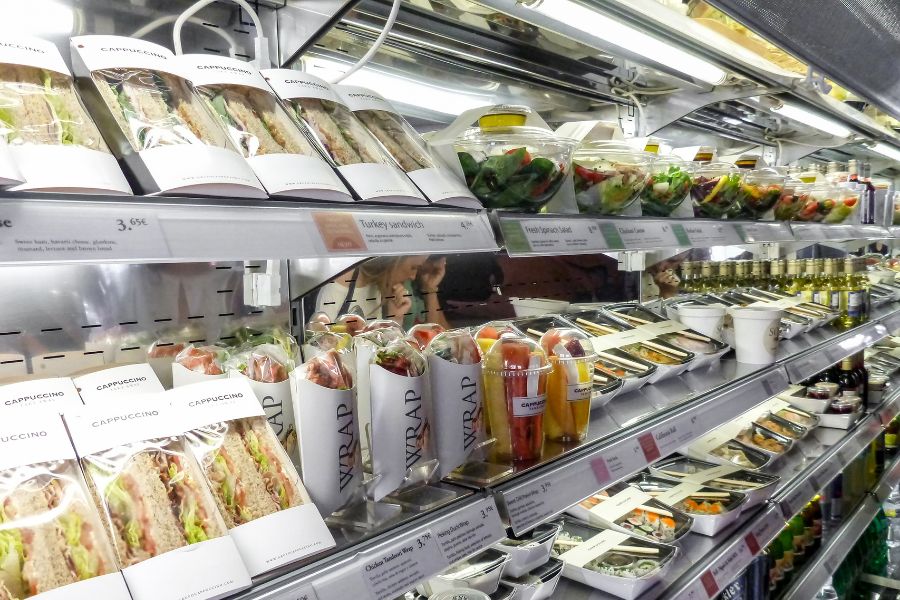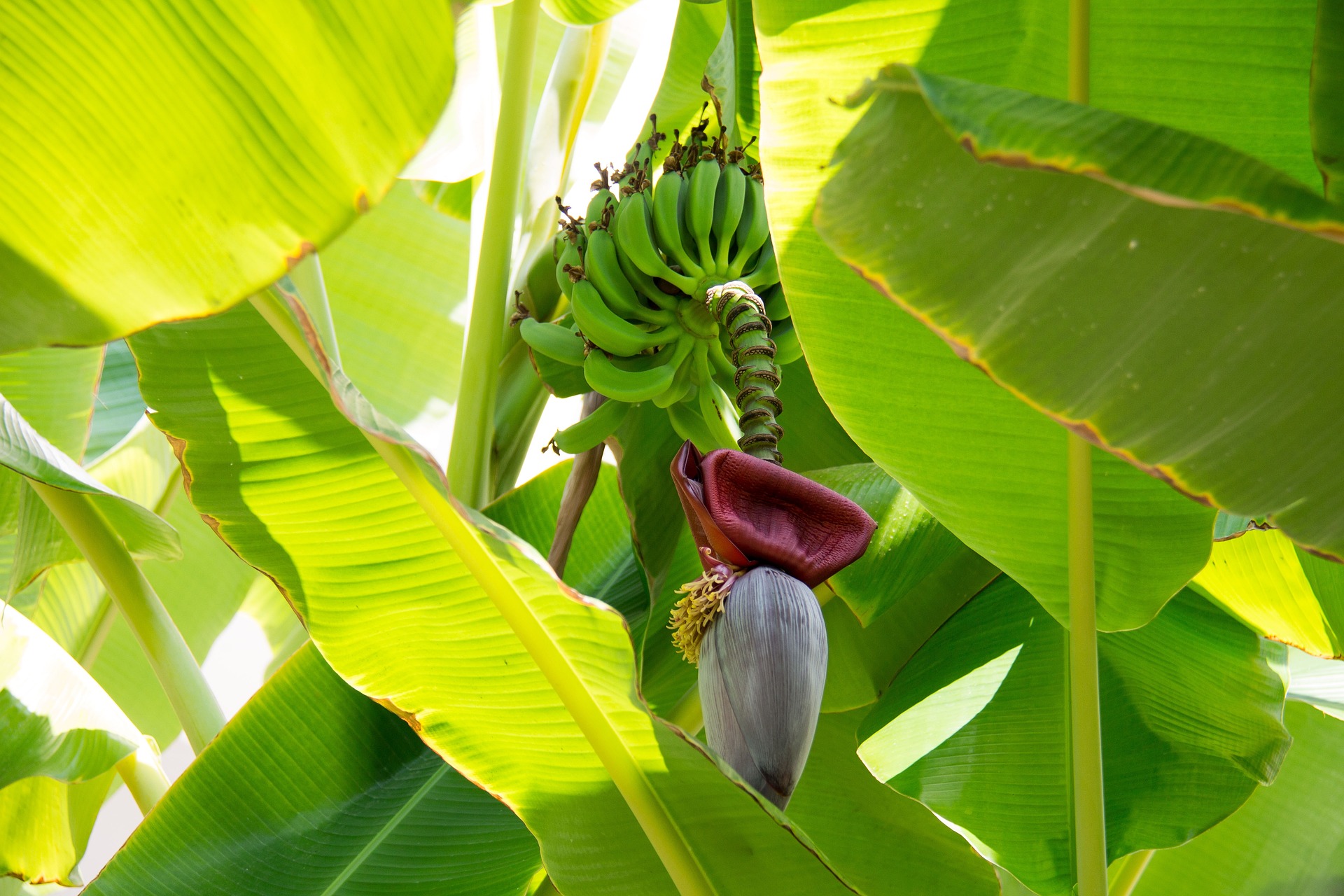“Organic food product range and snacking sector has potential for development”
Choithrams stands out as a thriving conglomerate, boasting engagements in various sectors such as wholesaling, commodity brokerage, and the production of both edible and non-edible goods. Since its inception in the UAE in 1974, Choithrams has evolved into a retail powerhouse, currently overseeing a network of more than 39 supermarkets (79 in GCC and 54 in UAE).
As a steadfast participant in events like Indusfood, India Business and Trade had the privilege of engaging with Pankaj Sajnani, Category Manager of FMCG Retail at Choithrams. During the discussion, we delved into the company’s forthcoming strategies and their anticipated aspirations for the upcoming Indusfood 2024.

Image Credit: Pixabay
IBT: What is the current business size of your company? Which are the popular product ranges under the F&B segments?
Pankaj Sajnani: Starting with the current size of our business in the company, I would like to emphasize that our presence extends beyond Dubai; we are also operational in Bahrain, Doha, Qatar, and Oman. Our business is categorized into two segments: retail and wholesale, essentially constituting a comprehensive commerce enterprise. In Bahrain and Qatar, we maintain a presence in both retail and wholesale, while in the UAE, we follow a similar model.
In Oman, however, our operations are solely centred around a distribution network. In total, we boast 79 outlets across all GCC countries, with 54 retail stores in the UAE, 16 in Bahrain, and 9 in Qatar. Our business scale is significant, with a total turnover of 400 million dollars, exclusively generated in the UAE. This figure encompasses both wholesale and retail activities.
When discussing the popular product range in the Fast-Moving Consumer Goods (FMCG) segment, we encounter a diverse set of retailers. In the UAE, with a population of 10 million, we cater to various cultures, including GCC expats, Indians with both South and North Indian backgrounds, Pakistanis, Filipinos, and more. This diversity highlights our engagement with different nationalities.
Our store clusters fall into four types: super premium, super value, fresh premium, and fresh value. The super-premium and premium categories target customers with higher paying capacity, while mass appeal characterizes the super-value and fresh-value segments. Our reach extends to European and US clientele in some areas, while we also serve the typical Indian clientele, particularly in the Bur Dubai area.
For the Indian clientele in Bur Dubai, we offer a dedicated assortment, especially hot beverages. Notable brands include Wagh Bakri Chai, Girnar, and ID coffee. In terms of beverages, we import Limca from India to meet the demand of our Indian clientele, as it is not locally available. Additionally, we recently added Coolberg, a non-alcoholic beverage, to our portfolio.
On the food side of our business, Bikaji stands out as the number one brand in terms of turnover. We also serve as the distributor and retailer for Mother receipe, solidifying our presence in both aspects of the supply chain.
We cater to our store, and for Mother SAP, we distribute across all modern trades, including Carrefour, Lulu, and various other retailers. Brands like Kamlesh, Gits, Balaji, and more are part of our distribution network. In light of 2023 being the millet year, inaugurated by Honourable Prime Minister Mr. Narendra Modi Ji, we’ve introduced Millet Mantra and Slurrp Farm to our product lineup, embracing the millet trend. Additionally, we’ve recently incorporated Two Brothers, a new brand from India, into our category.
Within the ‘Food of the World’ category, our sub-department specializing in Indian foods holds the second rank. Over the past few years, from 2020 to 2023, we have witnessed exponential growth in sales during Diwali. Selling Bikaji and other items, including gift hampers, during Diwali has contributed to our double-digit growth. Comparing 2022 to 2023, we’ve doubled our business in terms of Diwali assortment, indicating the significant presence and demand from our Indian clientele.
IBT: How do you envision your growth over the next five years and what are the key focus areas to maximize value for your customers?
Pankaj Sajnani: The stability of the pie chart is attributed to the UAE’s population standing at 10 million. This constancy is influenced by the population’s fluctuating nature, driven by the transient influx of tourism. With regular arrivals and departures, the population maintains a consistent pie size, even as competition intensifies day by day. Each retailer strives to capture a maximum share of the market.
Our primary focus area is on expanding our reach by adding new doors. The more doors we have, the better we can cater to our customers, thereby retaining them in our customer base. Opening new doors is a key strategy for the upcoming years. Another significant aspect is the growth of e-commerce as a channel. Before COVID-19, e-commerce contributed only 5% to the brick-and-mortar store business. As of 2023, this contribution has increased to 15%. We not only have our online channel, choithrams.com, but we have also incorporated other aggregators into our portfolio over the last two to three years. These include delivery service websites such as Talabat, Noon and more.
Secondly, let’s explore how we can expand our business through different channels. As mentioned earlier, the first channel we are focusing on is e-commerce. Additionally, we are strategically identifying categories with high online sales, such as water, diapers, and pet care. This is driven by the convenience factor, as consumers prefer the ease of ordering bulky items like water and diapers online, especially for home delivery. Pet care is particularly interesting due to the brand loyalty observed in this category. Consumers often prefer specific brands for their pets, making it a prime target for online promotion.
Moving forward, we are considering establishing dark stores. These stores, dedicated to fulfilling orders for e-commerce channels, help us penetrate the market more effectively. Dark stores offer the advantage of lower carrying costs since consumers don’t physically enter these spaces. The emphasis in dark stores is on heavy-duty shelves to ensure optimal product availability, as this is a key criterion for success in this model.
The fourth point involves Category Management Projects (CatMan). The CatMan project is an initiative we undertake in collaboration with vendors. Taking Procter & Gamble (PNG) as an example, they excel in CatMan projects, particularly in the detergent category with brands like Arial. Our approach involves identifying the assortment and strategically managing it by trimming the tail—removing slower-selling items. This ensures that top-selling brands, contributing significantly to turnover in terms of volume, receive a fair share.
Additionally, this year, we’ve aligned with Nielsen for another CatMan project, focusing on the cheese category. In-house, we are acquiring a tool from Nielsen to implement the project according to our own methods. For instance, in the detergent category, if we consider brands like Arial and Tide, we arrange them by family. This means grouping top-loading variants together, front-loading ones on another side, and separating bar soaps and liquid soaps. This approach aims to create a category layout that is easy for consumers to navigate and enhances the shopping experience.
The sixth point revolves around cross-docking, a method employed for inventory control. Cross-docking is a strategic approach that addresses the challenge of maintaining inventory. In the past, we used to stock a 15-day inventory in our warehouse. However, with rising banking interest rates, carrying more inventory in the warehouse translates to increased interest losses. To counter this, we introduced a tool known as cross-dock.
Cross-docking involves consolidating store requirements into a single bucket, which is then converted into a purchase order (PO). For instance, if ten stores request ten pieces of Arial each, totalling 100 pieces, I issue a Local Purchase Order (LPO) for the entire quantity, and it is directly distributed. This method ensures that ground stock is not retained for an extended period, resulting in lower inventory levels and optimal stock in the stores. By implementing cross-docking, we aim to streamline our inventory management and support our five-year plan, which includes new store openings, alongside other initiatives such as e-commerce, online channels, dark stores, CatMan projects, and Nielsen projects. Integrating these elements into our agenda is a key step in driving our growth strategy.
IBT: What are the consumer market trends of interest to Indian companies when speaking about fresh and processed food? What products, in your view, hold untapped potential in the region?
Pankaj Sajnani:In the Indian consumer market for fresh and processed food, key trends for companies include a growing demand for health-conscious and sustainable options, with emphasis on organic and locally sourced foods. Convenience is crucial, particularly in urban areas, driving interest in ready-to-eat and easy-to-prepare processed foods. Plant-based and alternative protein products offer untapped potential, catering to the rise of vegetarianism and flexitarianism. Exploring regional specialties and niche products can unlock market opportunities.
The second point pertains to the new brands we are interested in, particularly in the beverages category. I noticed a gap in our portfolio regarding the Indian assortment of beverages.
If I discuss nonalcoholic drinks, they are not readily available in India. This includes nonalcoholic wines, rums, and scotch. While these items are accessible in the European market, there is currently no Indian product offering. Another underrepresented area is energy drinks, with few Indian brands present. Currently, Coolberg stands as the sole brand in this category, while Red Bull holds a significant share in the energy drink segment.
Post-COVID, a new category has emerged, known as shots, including ginger and turmeric shots, which are not part of the Indian range. Jeeru is a brand offering refreshing and appetizing shots, suitable for various gastritis conditions.
In terms of traditional drinks, Frooti and Maaza have been absent from the Dubai market for a considerable time, presenting an opportunity in the mango-based drinks category. Cold coffee is another focus, available in the Indian assortment, alongside cold chocolate drinks such as Ashokas or MTR.
Additionally, there is potential in the organic range, which has gained popularity post-COVID. Millet-based products, as mentioned before, offer another promising category. Fresh foods, especially cheese and paneer, are areas where we see a gap in both processed and fresh food. Exploring Mozzarella and feta cheese can further develop our presence in the cheese category. Finally, frozen products present another avenue for expansion. These identified areas represent gaps in the market that we can potentially fill.
IBT: What suggestions would you like to make to Indian fresh/processed F&B brands looking to expand their presence in your region via B2C/B2B mode?
Pankaj Sajnani: We are currently exploring Indian brands in the food and beverage sector, with a particular focus on plant-based products. Ready-to-eat items are also under consideration. However, in Dubai, where there is easy access to fresh food, the ready-to-eat category may not be as prominent. On the contrary, the snacking sector has the potential for development, given the increasing health consciousness among people. While Lays chips are readily available, there is an opportunity to introduce alternatives like hummus chips, quinoa chips, Amaranth chips, or other superfoods.
A recent trend observed in Dubai is the availability of panipuri water in bottles, catering to those who prefer ready-to-eat panipuri without venturing outside. This presents an avenue for further exploration and innovation. Additionally, a brand called ID has been successful with its dosa batter and vada batter in pouch packaging, suggesting an opportunity to expand this product line.
Considering environmental concerns, we are also looking into sustainable packaging. As an Indian market player, we can contribute to sustainability by adopting paper-based packaging and providing eco-friendly options to our consumers. This initiative aims to reduce the impact on landfills and minimize the use of plastic in our packaging solutions.
IBT: How do you see the relevance of Indusfood for your business growth? What are you looking forward to on the show this year?
Pankaj Sajnani: Indusfood holds immense relevance for our business growth as it provides a strategic platform to showcase our products to a diverse global audience. The event facilitates networking, fostering valuable partnerships, and opens avenues for international market expansion. Participation enhances visibility and fosters trade opportunities critical for our continued growth.
We adopt a discerning assortment strategy, carefully selecting products. Our retail stores employ a discreet trial method, evaluating a product’s performance. Successful items are then considered for repeat orders, emphasizing our commitment to quality and measured business growth. To illustrate, let me mention an example. We added Karachi Bakery, renowned for its exceptional biscuits from Hyderabad, to our portfolio. During a recent visit to Hyderabad, I noticed Karachi Bakery kiosks even at the airport. This addition has proven successful in Dubai, prompting several repeat orders. However, a challenge arises as there is currently no authorized distributor available there.
For brands experiencing significant success from a mass perspective, it would be beneficial if they could appoint a distributor in Dubai. This would streamline the process for other retailers and ensure the distributor receives a fair share in terms of sales quantity and volume. Currently, each entity brings its own products, but having a designated distributor could enhance efficiency. I believe that addressing this issue would bridge the gaps in the Dubai market, where some Indian brands perform well, yet there is a lack of assigned local distributors. Take, for instance, the case of 4700 BC, a popcorn company that is thriving but lacks a distributor in Dubai. Establishing synchronization between the manufacturer or producer in India and the distributor in Dubai is crucial.

Pankaj Sajnani works as a Category Manager, FMCG Retail at Choithrams.













Leave a comment